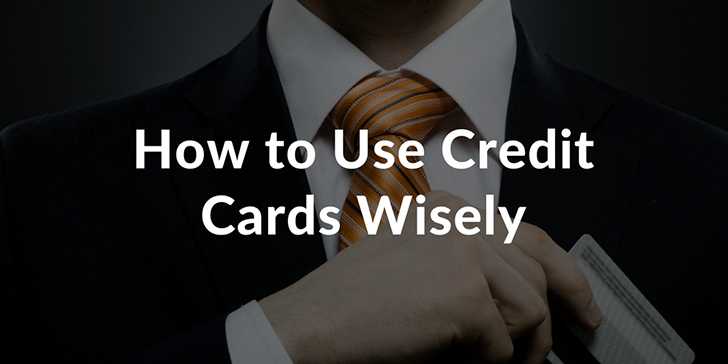6 Tips for Using Your Credit Card Wisely
In this highly developed digital world consumed by consumerism and economic recession, people have become more and more clinging to credit cards. It's almost safe to say that few adults live their lives without credit cards. However, there are still many people get caught in endless debt cycles due to improper use of their cards, while the banks get richer from the late payment penalty, high-interest fees, and poor customer service.
To get the most from your credit card and avoid to get caught into the debt trap, here we would like to share a few credit card tricks to help you take better control of your finances.

1. Always Pay off Your Balance in Full and on Time
Making sure you pay off credit card bill in full within the interest-free period is undoubtedly the most important thing to do with a credit card. The moment you can't pay your bill in full, you'll be charged with interest fee which will compound at a daily basis until you pay them off. Late payments will also lead to penalty fees, or even worse, knocking down your credit score quickly.
If you have a full-time job with steady income, it's plausible to set up an automatic payment to make sure all your bills are paid at the exact time.
2. Stay Below Your Credit Card Limit
A high credit card limit is a double-edged sword, solving urgent money needs but leaving a significant balance that you cannot afford. You should keep in mind that credit card limit isn't an invitation for you to spend free. To avoid the possible huge burden, you should stay below 30% of your credit limit.
3. Take No Cash Advances
Cash advances can be very useful in emergencies, but it costs way much higher than the regular purchases because they charge a higher interest rate. Therefore, it's of great importance for cardholders to resist the desire to take cash advances.
4. Keep Track of Your Monthly Credit Card Spending.
We tend to make impulse buying or overspend for things we don't actually need just because they are at a discount. Writing down every purchase you make will help you understand and rethink your spending habits, so next time you can avoid some unnecessary purchases.
5. Limit the Amount of Cards
Having too many credit cards may lead to excessive use which will damage your credit score, and add to your debts. On average, a person with 3 and 5 credit cards can be considered as normal.
With 1 or 2 cards from major issuers, and another 3 for retail, rewards, and travel, it will cover a person's most needs in daily life.6. Pay More than the Minimum
Last but not the least, pay as much as you can if you cannot pay off your balance in full. Of course, it's best to pay off each time, but there are times when we are really short of money. In such cases, do pay as much as you can. If you only pay the minimum, you will find yourself in a debt cycle where the debt gets much bigger each time and it will take years to pay off.